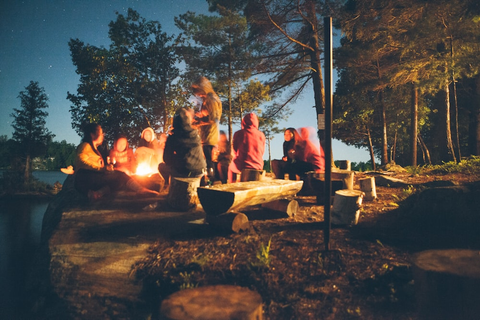From setting up your campsite to ensuring safety in the wilderness, this comprehensive guide covers everything you need to know to make the most of your outdoor excursion.
Dos:
Plan and Prepare
Before embarking on your camping trip, research your destination and familiarize yourself with local regulations and weather conditions. Make a checklist of essential items, including lightweight backpacks, camping tents, portable stoves, sleeping bags, and cooking equipment. A dynamic daypack for hiking is essential for carrying essentials during day trips.
Choose the Right Campsite
Select a campsite that meets your needs and preferences, considering factors such as proximity to water sources, level ground for pitching tents, and scenic views. When setting up your campsite, follow Leave No Trace principles by minimizing your environmental impact and respecting wildlife habitats.
Practice Campfire Safety
If permitted, build campfires in designated fire rings or pits and keep them small and manageable. Always have a supply of water nearby and fully extinguish the fire before leaving the area or going to sleep. Avoid using flammable liquids to ignite the fire, and never leave it unattended.
Respect Nature
Take only memories; leave only footprints. Respect wildlife by observing from a distance and refraining from feeding or approaching animals. Dispose of trash properly and pack out all waste to keep the environment pristine for future campers.
Stay Hydrated and Nourished
Maintain hydration and energy levels by drinking plenty of water and consuming nutritious meals and snacks. Bring along lightweight backpacking gear for cooking and storing food, and be mindful of proper food storage to prevent attracting wildlife to your campsite.
Don'ts:
Leave Food Unattended
Never leave food or garbage unattended at your campsite, as it may attract wildlife and pose safety risks. Store food securely in bear-resistant containers or hang it from trees away from your sleeping area.

Ignore Safety Measures
Prioritize safety at all times and be prepared for emergencies. Carry essential items in your daypack for hiking, such as a first aid kit, navigation tools, extra clothing, and emergency shelter. Familiarize yourself with basic wilderness survival skills and know how to respond to common outdoor emergencies.
Damage Natural Resources
Avoid damaging natural resources by staying on designated trails and avoiding trampling vegetation. Refrain from cutting down trees or damaging plant life for firewood or other purposes. Respect cultural and historical sites and refrain from removing or defacing artifacts.
Overpack
While it's essential to be prepared, avoid overpacking unnecessary items that will weigh you down and take up valuable space in your backpack. Stick to the essentials and prioritize lightweight and multi-functional gear to minimize your load and maximize comfort during your camping trip.

Ignore Leave No Trace Principles
Adhere to Leave No Trace principles to minimize your impact on the environment and preserve the wilderness for future generations. Pack out all trash, avoid disturbing wildlife, and leave natural and cultural resources intact for others to enjoy.
Explore our selection of lightweight backpacking gear and dynamic daypacks at Light Hiking Gear. Gear up for your next adventure today! Get in touch with us for more details.




0 comments